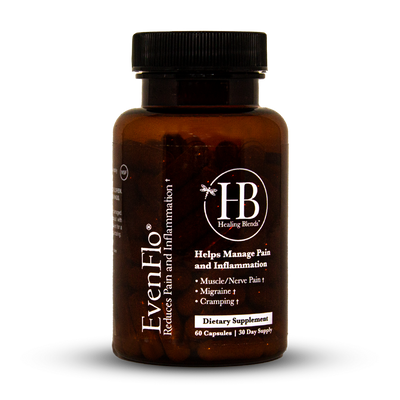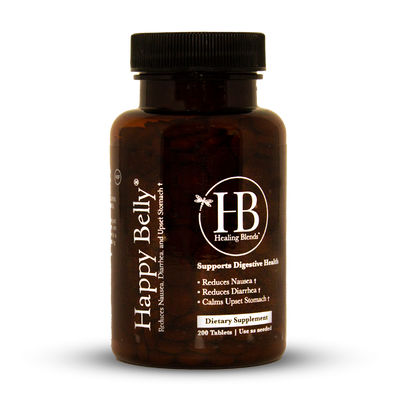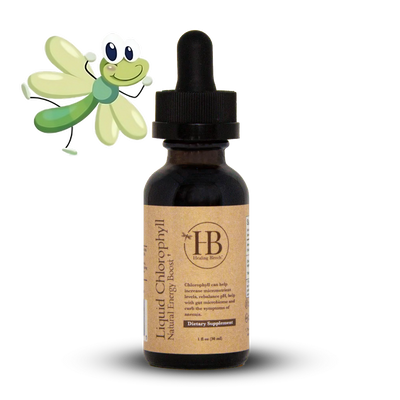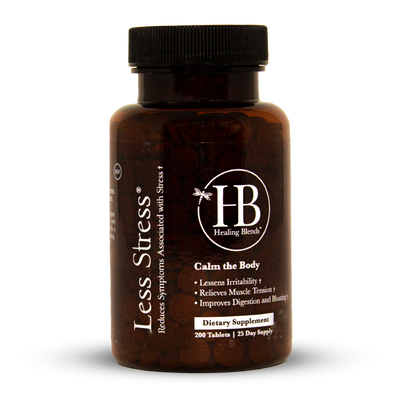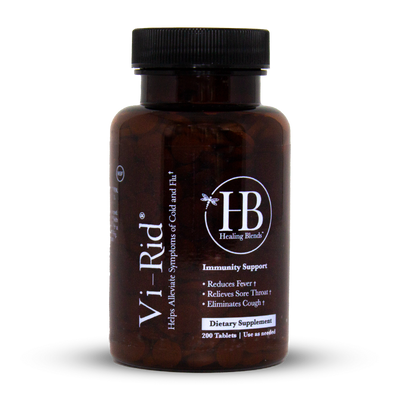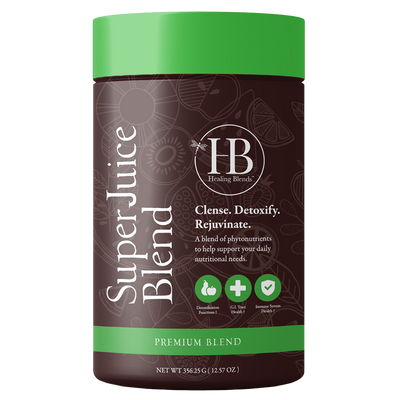Herbal Supplements for Arthritis
If you are experiencing pain in the joints and having problems moving your bones, you might be suffering from arthritis. Arthritis is a common disease among adults and the number one cause of disability. In fact, the Center for Disease Control and Prevention estimates that in the US alone, there are around 54 million people diagnosed with arthritis and the number is expected to increase to 78 million by the year 2040.
Arthritis is a serious condition that can limit physical activities. Patients suffer workday losses, become unemployed, spend huge amounts for frequent hospitalizations, and many end up with a physical disability. Unless you find the right medication to help you, the disease can affect your overall quality of life.
What is Arthritis?
Arthritis refers to the different inflammatory conditions that lead to pain and stiffness in the joints and the surrounding tissues. There are several types of the disease but the most common is the osteoarthritis (OA). To understand the condition further, let’s take a short anatomy and physiology review.
Cartilage covers two adjacent bones in the body. This is a connective tissue that offers protection and cushion to prevent the two bones from rubbing each other. Collagen makes the cartilage flexible and strong. Just like any other organ in the body, they experience wear and tear over time. Degeneration of the cartilage leads to painful movement within the joints and this becomes arthritis. But apart from aging, there are also different other causes that may lead to their deterioration.
Symptoms of Arthritis
Pain, stiffness, and inflammation are the most common symptoms of arthritis. The intensity varies from one person to another and the symptoms may also come and go. When pain and swelling worsen, even regular daily activities become difficult. The most affected joints include those in the knees, lower back, hips, feet, neck, fingers, and thumb.
Swelling
The inflammation around the affected area is because of fluid retention. The accumulation may be due to the increase in the volume of synovial fluid – the liquid portion found in the joints. The process occurs as a result of the movement of more blood in the area and the infiltration of more inflammatory cells.
Pain
Because some nerves are pressed in arthritis, there is an associated tenderness and discomfort. The pain may come and disappear. It may be felt while moving or even at rest. You may also feel it in different areas of the body where joints are inflamed.
Stiffness
Long periods in a sedentary position can make the symptoms worst. Prolonged sitting, standing, and laying can intensify the pain around the area. Most patients report the most intense stiffness occurs early morning upon waking up. In fact, health organizations use this sign in the initial diagnosis of osteoarthritis. The pain may last for an hour and getting up from bed can be a real struggle for many.
Decreased Range of Motion
Range of motion refers to the distance and direction at which joints can move. Doctors establish a normal range of motion depending on the location of the joint. For example, in the knees, experts say that it should be able to bend up to 130 degrees and it can also fully extend to a completely straight position.
In arthritis, there is a notable reduction in the range of motion. They may also find complete leg straightening to be impossible. Further extension may result in pain and discomfort for patients.
Loss of Mobility
Because of the associated pain, sufferers of arthritis experience difficulty in moving around. Simple activities like walking, climbing stairs, squatting down, and lifting the legs come with greater limitations. Patients also report problems in doing other tasks like lifting objects and grasping or holding things.
Are There Other Complications of Arthritis?
Fluid accumulation in the joints often leads to the decline of beneficial chemicals. If this happens, there will be a loss of cushion in the area and thus, it becomes more susceptible to pressure and shock. Bone spurs coming from free-floating bones can also be a possible problem that can further complicate your condition.
What Causes Arthritis?
There is no single cause of arthritis. If aging alone is the cause of the degeneration of cartilage, then all older adults should be suffering from it. Instead of pinpointing one cause, experts say that the condition is multifactorial. There are several factors that lead to the disorder with genes and lifestyle as the top predisposing factors.
Genes
Your genes play a significant role in the development of arthritis. The genetic makeup you inherit from your parents can increase your risk of developing the disease. There are several theories proposed as to why the condition runs in the family. But generally, the defective genes inherited lead to the problem. In osteoarthritis, the gene may not be capable of producing sufficient cartilage to offer cushion for the bones while in rheumatoid arthritis, certain substances called autoantibodies attack and destroy the tissue. Whichever way, the cause is still a problematic gene.
Obesity
Joints in the knees and hips are considered as weight-bearing parts of the body. Excess weight adds more pressure on them. According to the Arthritis Foundation, the excess pounds born by your joints cause extra stress on them. Thus, obese and overweight individuals are more prone to the condition than those who maintain a healthy weight. In a study conducted by Dr. Stephen Messier of Wake Forest University, they found out that 10% of weight loss among obese patients can significantly reduce the symptoms of arthritis.
Infection
One type of arthritis called septic arthritis is due to infections with certain microorganisms. Normally, the joints should be free from any bacteria. Infection with any disease-causing germs can lead to the condition. Unlike other forms of arthritis that can be difficult to treat, the use of antibiotics for this type will resolve the problem.
Gout
Individuals with high levels of blood uric acid may also suffer from what is called gouty arthritis. The problem occurs when the extra amount of uric acid enters the joint and crystallizes in the area. The accumulation happens after having meals high in uric acid. In order to reduce the sudden striking pain, you must avoid foods like meat organs.
Injury and Overuse
Trauma and repetitive movements of the joints are risk factors for developing the condition. Athletes are the most susceptible population because of their activities. It is advisable that players do stretching prior to work-out and after training sessions, allow sufficient time to let the cartilage to rest.
Treatments Available for Arthritis
There are several treatment options for arthritis. They vary in terms of their action, effectiveness, and safety. Generally, health experts recommend that you go for treatments that offer long-term solutions. They are intended to give you permanent relief while the short term only manages the presenting symptoms.
Medication
Many patients with arthritis resort to pharmaceutical drugs to find comfort from the symptoms of arthritis. Doctors prescribe analgesics to reduce the pain and anti-inflammatory drugs to reduce the swelling. Although they may be effective initially, the drugs may cause dependency in the long term. This means that to reduce the pain, you may require a higher dosage of the drug to achieve the same effect. The cycle goes on and on until your body’s tolerance increases. Drugs may also cause liver damage, stomach bleeding and even heart attack if they are not used correctly. Thus, they are not considered a lasting solution to your problem.
Apart from alleviating the symptoms, drugs like acetaminophen do not target the underlying cause of the problem. You simply keep on buying on these medications to give you temporary relief.
Natural Alternatives
The best way to manage arthritis is to go for natural alternatives. Unlike drugs, they do not lead to serious side effects. In fact, going natural can even promote better health and free you from other health problems. They are also a lot cheaper, more effective and safer than medicines.
Diet Modification and Weight Management
Obesity has always been implicated in various health conditions. Excess fats worsen arthritis and fat cells increase the degeneration of cartilage. Nutritional interventions must focus on weight management while keeping all the important nutrients in check. There are also some foods known to reduce the symptoms of osteoarthritis. Patients are advised to take plenty of them when managing the disorder.
Omega-3 Fatty Acids
Omega-3 fatty acids are the healthy fats that come from fishes like sardines and salmon. The healthy fatty acid has long been studied in its ability to treat the symptoms of arthritis. In one article published in Wiley Online Library, investigators studied the long-term effect of the substance in patients with active rheumatoid arthritis. The 90 patients enrolled in the study showed that omega 3 can actually lead to significant clinical benefits and possibly reduce the need for further antirheumatic medications.
Foods Rich in Fiber
Fiber helps control weight by stimulating a healthy digestive process. Foods rich in fiber include fruits and vegetables. According to the Arthritis Foundation, the food group can also lower the markers of inflammation. Nutritionists recommend that an average adult should take 20-35 grams of fiber each day. The amount translates to having at least a quarter of your plate from cornmeal, brown rice, fruits or vegetables.
While there are foods to help you deal with your condition, there are also foods that you must avoid to prevent worsening the symptoms. They include potatoes, eggplant, tomatoes, meat organs, processed foods, and excess sugar.
Exercise
Most people with arthritis become less active because of their condition. But you must remember that exercise is actually one of the treatments for osteoarthritis. In a study published in Medpharm, researchers concluded that exercise should always be a part of the intervention for patients with osteoarthritis. Regular physical activities improve muscle and joint strength and reduce the symptoms associated with arthritis. Stretching, brisk walking, aerobics swimming and bicycling are all effective ways to build strength and endurance. Even just a few minutes of moderate-intensity exercises can go a long way in managing your symptoms.
Acupuncture and Chiropractor
Both acupuncture and chiropractors are under the category of alternative medicine that deals with arthritis. Acupuncture has long been used in traditional Chinese medicine to treat various diseases. To determine its effectiveness against arthritis, several studies have been conducted involving actual patients. A study published in the Cochrane System Review shows that patients showed a 4-point decrease in the pain scale after undergoing acupuncture.
Herbal Supplements
Nature has always its own way of healing. Herbal supplements come from plant-based and natural sources. They contain highly concentrated forms of beneficial substances that can treat the symptoms of arthritis. Although not regulated by the Food and Drug Association, more researches are being conducted on the effect of herbal supplements for arthritis. Recently published studies show solid clinical evidence that supports their use. Many recommend the natural approach compared with the use of conventional drugs because herbal supplements for arthritis are relatively safe and do not lead to drug dependence.
Proteolytic Enzymes
Proteolytic enzymes have been shown to treat the symptoms of arthritis by reducing the swelling and pain in the affected joints. Apart from the anti-inflammatory effect, the enzymes also improve the digestion. Trypsin, chymotrypsin, papain, and bromelain which are all proteolytic enzymes, help digest food properly and subsequently assist in weight management. Naturally, these are found in papaya and pineapple.
Turmeric
Turmeric is a century-old herbal supplement used not just for arthritis but for many other health conditions involving inflammation. The anti-inflammatory and analgesic effects are used to treat swelling and pain. Compounds like curcumin and turmerone are considered as powerful natural anti-inflammatory agents. In different studies involving turmeric, researchers have noted the ability of the herb to prevent cartilage destruction among human and animal models. One particular study published in the Journal of Arthritis and Rheumatology shows that extracts prevent several cytokines involved in inflammation. Another research found in The Journal of Alternative and Complementary Medicine also recommends a daily dose of turmeric to treat arthritis and the effect is as good as ibuprofen.
Comfrey
Comfrey is a medicinal plant common in Europe and parts of Asia. Native Americans recognize its healing power and use it to soothe all types of pain and inflammation. The roots contain allantoin, fructose and glucose, phenolic acids, glycopeptides, and amino acids. According to scientific literature, comfrey stimulates tissue regeneration making it a good treatment for the deteriorating cartilage.
Boswellia
Boswellia extract is highly beneficial in treating arthritis. German researchers studied the extract among 260 volunteers showing symptoms of arthritis-like joint swelling, pain, and stiffness. They administered the extracts among the experimental group and placebo among the control group. Based on the results, Boswellia showed therapeutic properties that can be helpful in treating rheumatoid arthritis and has great potential in replacing other arthritis-related drugs.
Cat’s Claw
A study published in Inflammation Research shows that Cat’s Claw significantly reduced the pain of patients with osteoarthritis during the first week of therapy. No notable side effects were observed during the 4-week trial. Investigators concluded that the herb is a safe and effective treatment because of its anti-oxidant and anti-inflammatory properties.
Evening Primrose
Clinical studies involving primrose show that the extract is capable of reducing the levels of prostaglandin – a strong inflammatory substance. In different trials conducted, patients reported a reduction in morning stiffness after taking a 6g/day of the herbal supplement.
Other known herbs to be effective treatments for arthritis include Gingko, Pine Bark, St. John’s Wort and Thunder God Vine. Single intake or a combination of these herbal supplements for arthritis can safely reduce your overall problem.
Final Thoughts
Arthritis is an unfortunate reality among many individuals. Your genes, lifestyle, and diet all contribute to the debilitating condition. As the statistics of arthritis sufferers continue to rise, do not allow yourself to be one of them. You do not deserve to live a life of pain, swelling, and inflammation. In fact, no one should suffer from any of these symptoms.
There are several ways on how you can stop arthritis from ruining your life. But instead of relying on drugs that can be damaging in the long run, why not consider the healthier alternatives. Diet modification, exercise and use of herbal supplements for arthritis are all proven ways to find relief. Science has already presented the facts. Start a healthy lifestyle today and make herbal supplements a regular part of your wellness routine.
Take a look at our Pain and Inflammation page for Arthritis-relief products.
References:
- “Arthritis” via Healthline
- “Arthritis: How CDC Improves Quality of Life for People With Arthritis” via CDC
- “Normal Joint Range of Motion Study” via CDC
- “When it comes to weight loss in overweight and obese adults with knee osteoarthritis, more is better” via Wake Forest University
- “Cat's Claw” via NIH















